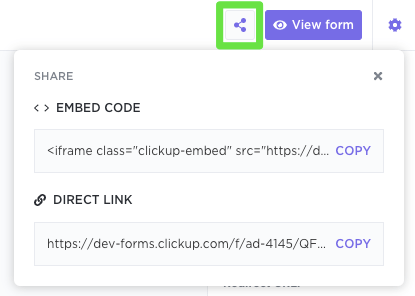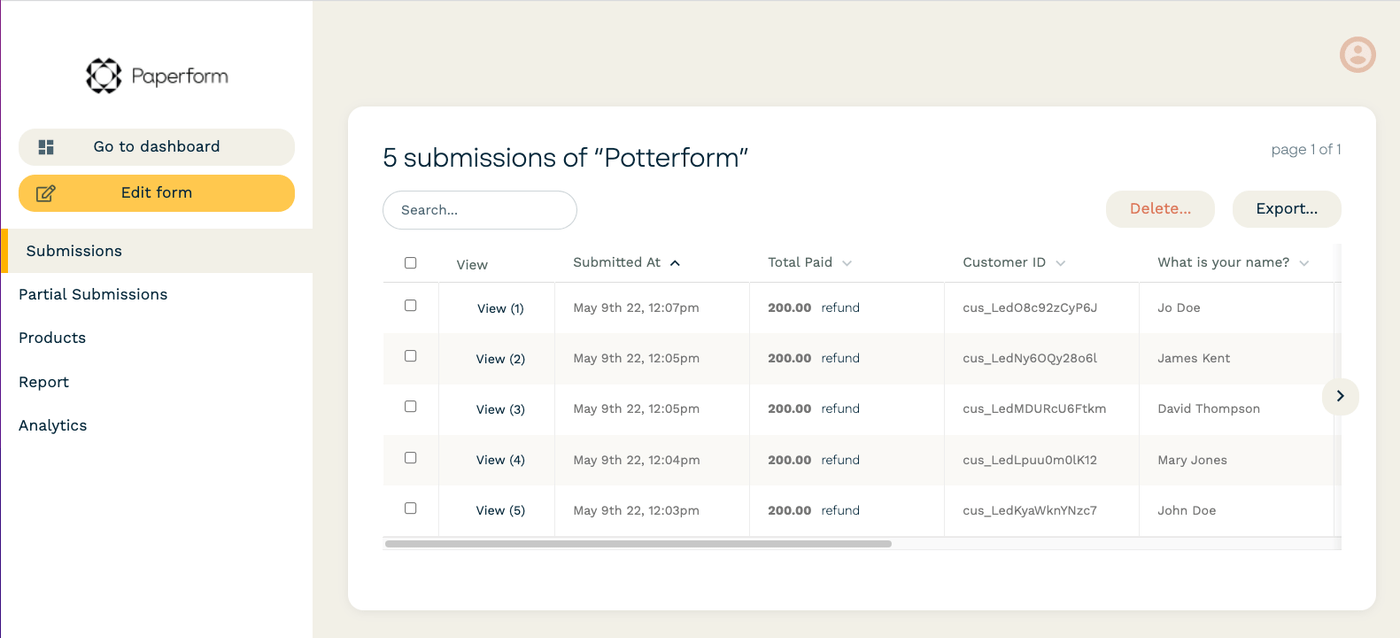10 Best Form Builders with Conditional Logic in 2026

Sorry, there were no results found for “”
Sorry, there were no results found for “”
Sorry, there were no results found for “”
From simple contact forms and user feedback surveys to multi-step lead-gen forms, I’ve tried them all.
A challenge I’ve constantly grappled with is tailoring each form based on individual user input. That’s why I’ve been on the hunt for a form builder with conditional logic.
Conditional logic functionality lets you build conversational forms. Once you apply conditional logic (a bunch of rules) to your form, the participants can see only relevant fields based on their inputs.
In my search for the best form builder with conditional logic, I’ve spent a lot of time testing different tools. These apps have simplified how I build forms, collect user responses, and analyze data to draw conclusions.
Based on those experiences and the research done by the team at ClickUp, I’ve hand-picked the ten best form builders with conditional logic.
So whether you want to build feedback forms, conduct market research, or create order forms, these tools can streamline your process and double your efficiency. Ready to dive in?
Before you make a choice, here’s what you should look for in form builders with conditional logic:
Building dynamic, user-friendly, and smart forms requires the right tool. Here’s a closer look at the top ten form builders with conditional logic to help you choose better.

ClickUp, an all-in-one project management software, has a powerful form builder feature. It helps me craft user-focused intuitive forms.
ClickUp’s Form View is the perfect space to build detailed forms with conditional logic. These forms dynamically update based on responses, making them user-friendly and effective at capturing relevant user information.
You can also create unlimited forms, streamlining all your data collection in one place.

I love that ClickUp Forms are customizable and super easy to use. I can convert user responses to trackable tasks with ClickUp automations and plug them directly into my workflows for immediate action.
Moreover, if there are too many responses, I can track all tasks by adding labels and details to the task description. This way, I can search for the right tasks and manage all my form-related activities within ClickUp without switching between multiple apps.

ClickUp also offers several form fields to manage different kinds of responses. I can add text, long text, phone, date, website, dropdowns, checkboxes, numbers, ratings, labels, and the list goes on. Plus, it has added field options for customization.
For instance, you can hide certain fields to prevent users from submitting their information twice. So if you already have a user’s email ID, you can mark the email field as hidden in the form, and it will prevent duplication.

When it comes to creating forms, I am very particular about customization and personalization. And ClickUp lets me customize my forms to reflect my needs.
I can configure my forms in different ways, such as:

ClickUp Forms are also incredibly easy to share. After I have customized my form, I can quickly copy the direct link to the form and share it with participants and other stakeholders.
Email is out, ClickUp forms are in!

Jotform is a free-form builder with conditional logic that offers a massive template library. It lets you create online forms from order form templates, feedback form templates, etc.
I tested Jotform to make customer feedback forms. With its pre-built templates, I could skip building the forms from scratch and gather responses quickly.
Jotforms also assists in analyzing form responses via detailed reporting.
Also read: ClickUp forms for software teams

I used Google Forms to create a conditional logic form for market research and found it to be a straightforward tool. Its drag-and-drop interface helped me create the form quickly, share it online, and analyze responses using charts.
The tool lets you add custom logic to your forms to show certain questions to users based on their previous answers.

It’s pretty challenging to find a form builder that reflects your brand personality. But with Wufoo’s customization options, customizing user forms is really easy.
It is a cloud-based, drag-and-drop form builder that lets you add conditional logic to the forms. You can customize forms using the built-in themes or create your own themes using the theme designer.
I used Wufoo to create surveys, contact, registration, and payment forms.

Among other form builders, Microsoft Forms is lesser known and still relatively unexplored.
I tested this free tool to create conditional logic forms with a certain set of criteria and was impressed by its ease of use. It helped me create surveys with detailed questions, polls, and quizzes for my marketing campaigns and provided design suggestions to make my forms attractive.
Also read: Google Forms vs. Microsoft Forms

Paperform is an online form creator with a clean interface that allows you to build conditional logic forms and automate workflows. The tool also helps to create payment and product pages without extensive coding.
While using Paperform, I found that adding conditional logic to forms and automating tasks is quick and fairly easy. You can also use it to automate call scheduling and generate survey reports. Paperform has also introduced AI-powered features that help generate forms faster and assist with analysing responses and calculations.

Zoho helps create personalized forms using conditional logic that can be used to set up automatic multi-step approval processes.
The tool offers free and paid fields to suit your needs. Try the free fields and add custom fields to create more effective forms.

With SurveyMonkey, you can create forms with conditional logic using AI support.
The artificial intelligence features help to double down on the specific question types for your survey, so you can ask all the right questions. You can also implement complex logic, such as branching, question randomization, etc., to create detailed surveys.
I tested SurveyMonkey’s form builder to create web campaign forms. Its logic features can show or hide questions based on user input, making the forms more intuitive and relevant for the target audience.
Team plans
Individual plans
Enterprise plans: Custom pricing

I used Typeform’s online form builder software to build survey and feedback forms using brand logos, colors, and styles. The platform’s intuitive interface and features make it easy to design conversational forms.
Moreover, it allows you to ask follow-up questions based on users’ answers, making surveys feel effortless. Typeform’s customization options assist you in integrating your brand identity into the forms seamlessly.

Cognito is the final form builder on our list. I tested the platform and really liked its drag-and-drop form builder with conditional logic that made data collection and management easy.
It helped me create customized forms, gather data from employees and customers, and act quickly with automatic notifications. It also helped me consolidate and organize user responses.
The effectiveness of a form builder depends on your specific business needs. In my experience, ClickUp’s form view was particularly useful for streamlining data collection.
Whether it’s an IT request, feedback survey, or HR-related information, I’ve found ClickUp to be the most efficient tool for gathering details and saving time. So what are you waiting for?
Try ClickUp for free and design the most customizable, high-impact forms you’ve ever seen!
© 2026 ClickUp